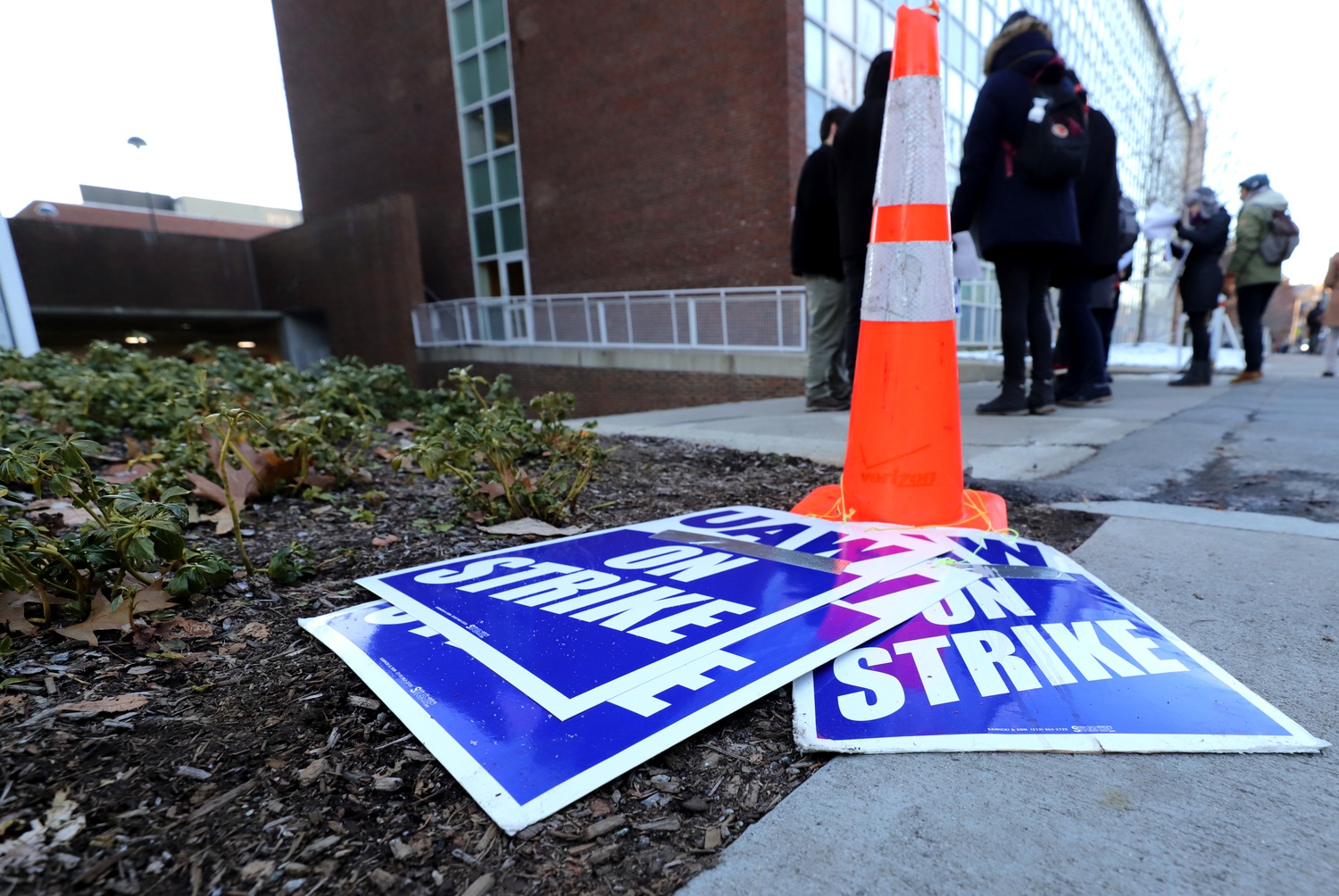
News
When Professors Speak Out, Some Students Stay Quiet. Can Harvard Keep Everyone Talking?

News
Allston Residents, Elected Officials Ask for More Benefits from Harvard’s 10-Year Plan

News
Nobel Laureate Claudia Goldin Warns of Federal Data Misuse at IOP Forum

News
Woman Rescued from Freezing Charles River, Transported to Hospital with Serious Injuries

News
Harvard Researchers Develop New Technology to Map Neural Connections
I Was Uber’s Chief Lobbyist. Vote to Let Its Drivers Unionize.
I served for years as one of Uber’s most senior executives before leaking the damning information that became known as the Uber Files. So believe me when I say: Massachusetts must vote yes on Ballot Question 3 to empower rideshare workers to unionize and fight back against their exploitation.
One of the local quirks that first struck me when I moved to the United States from Amsterdam three weeks ago was the use of yard signs to express political or cultural beliefs. Unsurprisingly, in my part of Cambridge, there are many, many Harris-Walz signs, but not a single Trump or MAGA analogue in sight. One such sign screams the laudable platitude that “injustice anywhere is a threat to justice everywhere.”
If we truly believe in the rhetoric on our lawns, we should seriously consider the implications of Question 3 of the Massachusetts state ballot.
In the run-up to this year’s presidential election, many commentators — even President Joe Biden — have said that “democracy itself is on the ballot.” Well, that is certainly true here in Massachusetts, where Ballot Question 3 would determine whether worker democracy, a right available to most other forms of labor, should be extended to those who drive the more privileged among us safely and comfortably around our cities and towns.
The ballot measure would change state law to allow drivers for companies like Uber and Lyft to vote on whether to form a trade union to fight for their rights and interests. It would allow them to have a voice and engage in constructive dialogue with the companies using their labor.
How did such a basic right become so controversial? My parent’s generation fought for universal social protections as part of the contract with the state, having fought to defend democratic values during WWII. My ungrateful generation, with its short memory and sporadic attention span, has all but traded away many of these rights in exchange for eye-watering quarterly profits, handsome salaries, lucrative bonuses, and princely expense accounts.
The opposition to worker’s rights stems from the predominance of Silicon Valley business models and their rapid destruction of democratic norms and hard-won social protections, the core of my work as a fellow at the Harvard Kennedy School’s Shorenstein Center.
Having contributed to Uber’s rise and global reach, I know the reality behind the company’s view of drivers. Far from being the backbone of the company’s success, as we called them years ago when subsidizing rides and giving huge cash incentives to lure them onto the platform, those drivers were always and inevitably a means to an end, a bridge from human to robot.
We had three different narratives for our primary stakeholders. To investors, our rhetoric was basically “get rich quick.” To consumers, it was “your own private driver, cheaper and cooler than taxis” — not difficult when you’re subsidizing rides with $10 billion in venture capital cash.
And to drivers? “We are building this together, without you there is no Uber.” Up to the point where autonomous vehicles take the wheel. Then, well, you know. Thanksgiving and turkeys, omelets and eggshells.
Today, Uber is a successful and profitable global corporation edging towards a market value of $200 billion, built on the belief that there is an economic contradiction between turning a profit and treating drivers with human decency. In Uber lingo, granting basic rights to drivers increases “friction,” meaning adding unnecessary costs to the bottom line. The same holds true for Amazon and many more of America’s other tech behemoths, which have caused a global tidal wave destroying labor rights and eroding human rights.
Allowing those workers to have a say in how they are treated by the platforms they work for goes up against the innate and immutable ideology of firms such as Uber. This business model is predicated on the notion that drivers and delivery workers are self-employed independent contractors, “chief executive officers” of their own firms, who cherish their freedom and flexibility to work as much or as little as they desire. Kumbaya!
The truth however, for a substantial portion of those workers is that they would prefer the basic social protections provided to the rest of us: Sick pay, medical insurance and other fundamental employment rights — not being depicted in advertising and on earning calls like Snow White’s diminutive co-workers gleefully whistling “hi-ho, hi-ho, it’s off to work we go.”
Gig economy companies like Uber fear that if workers here in Massachusetts are given this right, workers in other states, and other countries, will seek the same. If only. The reality is that rideshare companies’ massive war chests finance lobbying and litigation on an industrial, global scale. They see this fight as existential, until the day when the only human beings in the equation are the ones sitting in the back seat, paying for the privilege, not having to worry how many stars to give the robot.
Voters in Massachusetts can’t change the world on Nov. 5, but they can make sure that social justice here can serve as a small beacon of hope for social justice elsewhere.
Mark MacGann is the Knight Public Interest Technology Fellow at Harvard Kennedy School’s Shorenstein Center.
Want to keep up with breaking news? Subscribe to our email newsletter.

